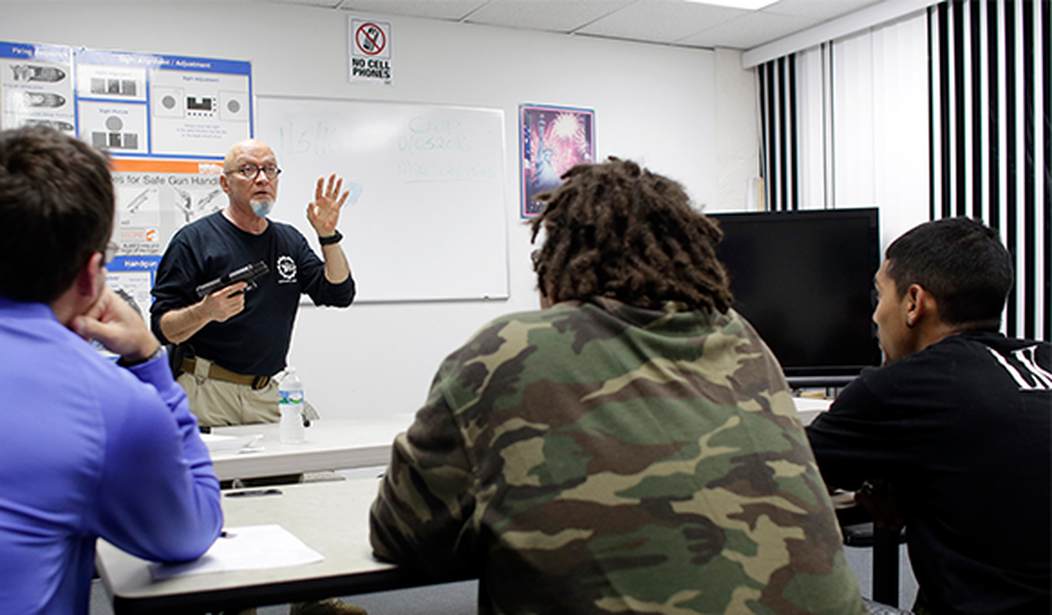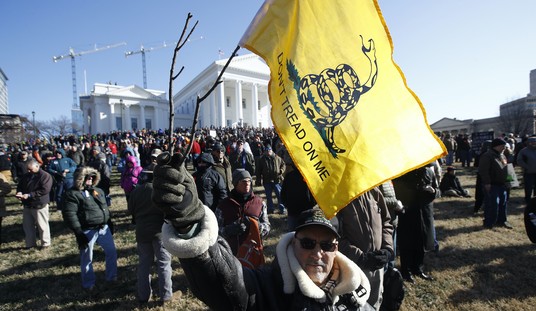It wasn’t long ago that U.S. District Judge Katherine Menendez ruled that Minnesota’s ban on concealed carry licenses for adults under the age of 21 was unconstitutional, but less than a month after handing down her initial decision in favor of the plaintiffs the Biden appointee is now siding with the state in its appeal.
On Monday Menendez granted a stay of her order at the request of Minnesota officials, noting in part the confusion that would arise if sheriffs started issuing permits for under-21s only for the Eighth Circuit Court of Appeals to side with the state during its appeal.
Attorney General Keith Ellison, a DFLer, has said he would appeal the March ruling that determined the age limit to be a violation of the Second Amendment. Minnesota law has restricted the permits to adults 21 and older who met other qualification standards.
In her latest order, the judge wrote that requiring sheriffs to issue permits to valid applicants could create problems if the underlying ruling is overturned on appeal.
“If no stay is entered, various county sheriffs will likely begin issuing permits to individuals between 18 and 21 years old while the defendants’ appeal is pending,” she wrote. “If this court’s decision were later overturned on appeal, the parties do not agree and point to no definitive authority to resolve the question of what legal effect that would have on any permits issued to 18-to-20-year-olds in the interim.”
Menendez went even further in her reasoning, however; undercutting her original opinion striking down the state’s prohibition by repeatedly arguing that issues like this are “open to differing conclusions” and that “[r]easonable minds can easily disagree about several aspects” of her own analysis.
First, another court could very well agree with the Commissioner’s position that “the people” to whom the Second Amendment refers did not extend historically to those whom the law considered minors or “infants.” The Eighth Circuit has not definitively spoken on the precise issue presented by this case, but it is worth noting that it has recently interpreted some of its pre-Bruen precedent as having been undisturbed by Bruen and having placed a limitation on the scope of “‘the people’ to whom the protections of the Second Amendment extend.”
In addition, the Court notes that under Bruen, discerning whether a law qualifies as a relevantly similar historical analog that might justify a regulation of the right to public carry is not a straightforward endeavor. At least one other court found that this reality weighed in favor of staying an injunction under nearly identical circumstances.
Third, as the Court noted in its March 31st Order, Bruen left open a critical doctrinal question concerning the proper historical lens for lower courts to consider when looking for possible historical analogues to justify a modern firearm regulation—the time when the Second Amendment was ratified, or when the Fourteenth Amendment was adopted, making the majority of the Bill of Rights applicable to the States.
… Finally, the significance of the issues presented and the rapid development of this area of law also tip this factor in the Commissioner’s favor…. Accordingly, this Court concludes that, although it stand by the reasoning and conclusions of its Order, the above considerations related to the likelihood-of-success factor support entry of a stay of the injunction pending resolution of an appeal.
Menendez may be acting out of an abundance of caution, but it’s hard to square her statement that she stands by her original argument finding the prohibition unconstitutional with the fact that she’s allowing the law to remain in effect anyway.
On the other hand, this kind of deference to the state isn’t unusual. Even U.S. District Judge Roger “Saint” Benitez has stayed some of his previous decisions in favor of California gun owners while the state appeals his rulings, and Menendez can at least somewhat reasonably argue that she’s just acting out of an abundance of caution and treading slowly given the relatively recent instruction by the Supreme Court to look at the text, history, and tradition of the Second Amendment rather than engaging in any sort of interest-balancing test when it comes to determining the constitutionality of any given gun control law.
Still, Menendez’s decision means that thousands of Minnesotans older than 18 but younger than 21 are still unable to exercise their right to bear arms in self-defense. That’s an untenable status quo, and one that will hopefully be resolved by the Eighth Circuit’s concurrence with her original order declaring the state law a violation of the Second Amendment.








Join the conversation as a VIP Member